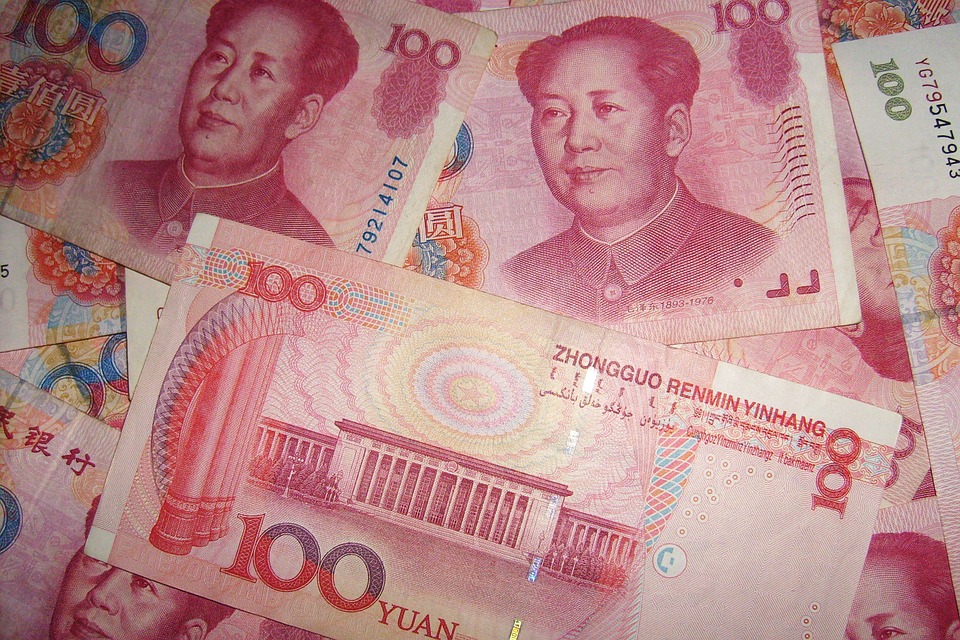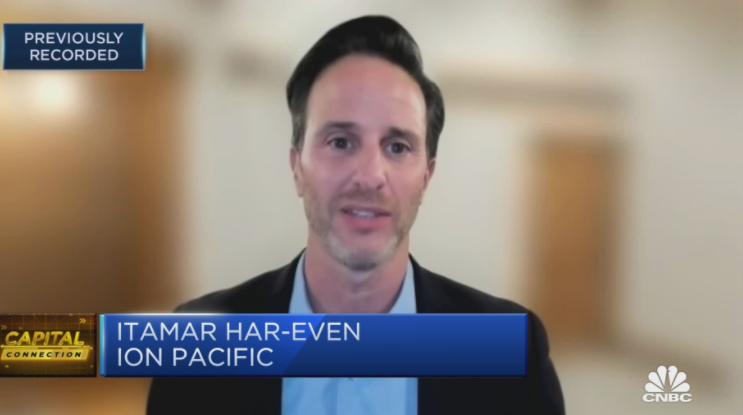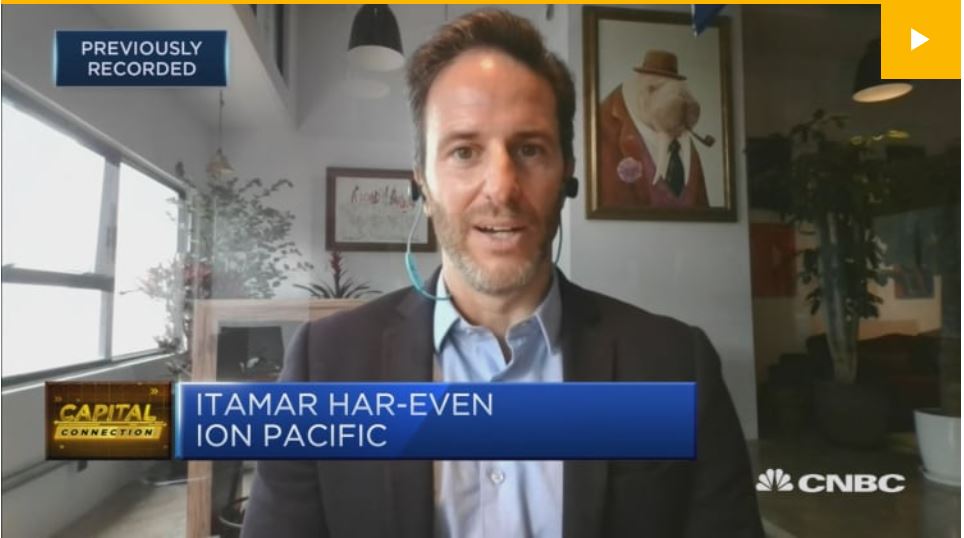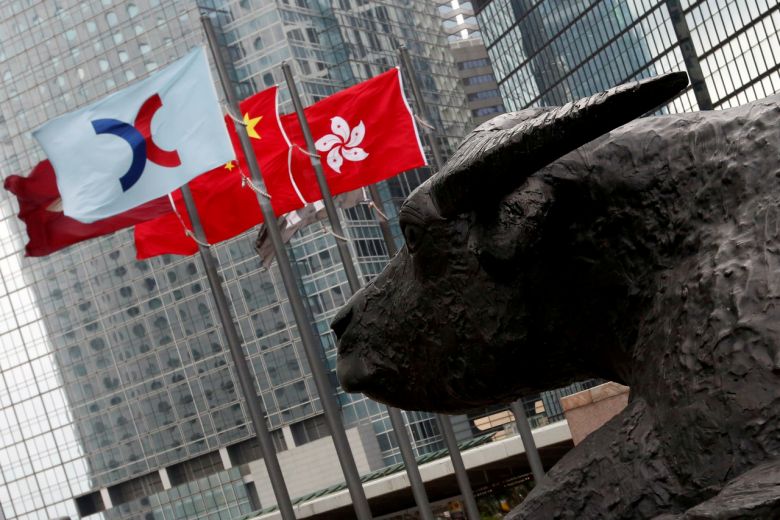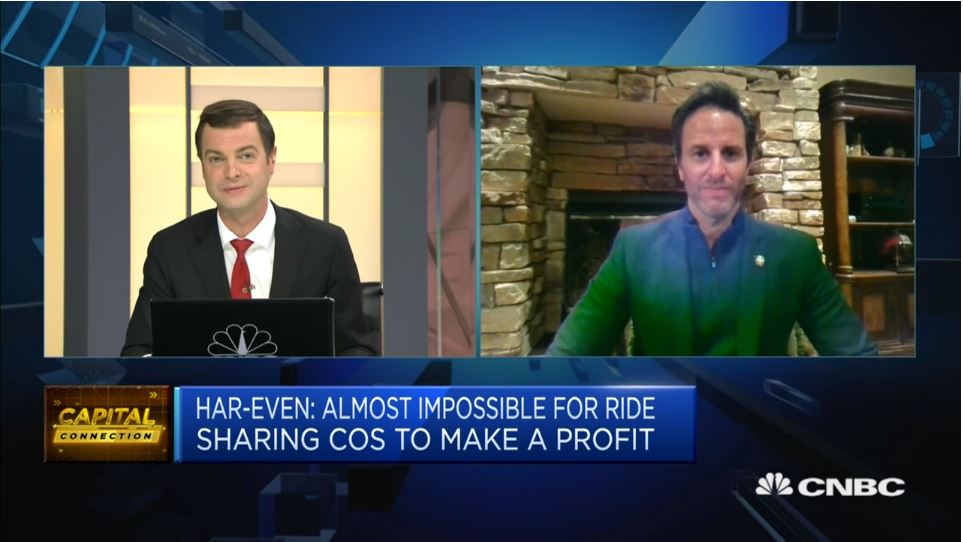Firms with ties to China may be at a disadvantage in global M&A deals
By
Julie Steinberg in Hong Kong and Ben Dummett in London
Itamar Har-Even, co-founder of Ion Pacific was quoted on Wall Street Journal.
Chinese companies are finding it harder to buy and invest in businesses abroad—even if they are willing to pay top dollar for such deals.
Political, regulatory and other hurdles to Chinese cross-border acquisitions are mounting in the U.S., Europe and even Japan, making some sellers wary of striking deals with firms that have strong ties to mainland China. At the same time, China has been reeling in some of its biggest deal makers on mounting concerns about capital leaving the country and high debt levels posing a risk to its economy.
Together, the constraints are limiting the prospects of Chinese companies that still have the resources and ability to expand overseas, and dampening an already lackluster environment for global mergers and acquisitions this year. The setback for Chinese firms also comes after they emerged in recent years as credible bidders for U.S. companies.
“In some ways they were the perfect buyer because they seemed to have a long-term view and an unlimited checkbook,” said Scott Barshay, global head of mergers and acquisitions for law firm Paul, Weiss, Rifkind, Wharton & Garrison LLP in New York. Their purchases “definitely drove up asset prices,” he added.
So far this year, Chinese companies have announced $113 billion in cross-border deals, down nearly a third from the same period a year earlier, according to Dealogic.
These days, simply being Chinese can be disadvantage in some deal negotiations.
Earlier this summer, Inner Mongolia Yili Industrial Group , China’s largest dairy company, bid more than $900 million for Stonyfield Farm Inc., a Londonderry, N.H. yogurt maker, according to people familiar with the matter.
Stonyfield’s owner, European packaged-food giant Danone SA, instead sold the business for $875 million to French dairy company Lactalis, which won in part because Danone and its advisers felt there was too much regulatory uncertainty associated with a Chinese buyer, people familiar with the matter said. Danone was under pressure from the U.S. Department of Justice to divest Stonyfield quickly as a condition of a separate acquisition it had made.
In Japan, Toshiba Corp. has spent months seeking a buyer for its large memory-chip division. It initially spurned a high bid from Hon Hai Precision Industry Co. —better known as Foxconn Technology Group—after Japanese government officials expressed concerns about the risk of Toshiba’s chip technology being leaked to China, where Taiwan-headquartered Foxconn has vast electronics manufacturing operations. The deal talks aren’t dead, however, and Toshiba is still weighing multiple offers, including one from Foxconn.
The Chinese government recently formalized rules limiting the types of transactions companies can pursue, restricting overseas investments in industries such as property, hotels and entertainment. Companies were largely following those rules for months before they were codified. Acquisitions that are core to companies’ main businesses are generally permitted and are continuing, say bankers, though deals of a certain size are being more heavily scrutinized.
Still, the guidelines, designed to stem outlandish deals and capital flight, have sharply slowed the pace of Chinese deals following a record 2016 in which state-owned and private corporations announced over $220 billion of acquisitions abroad.
China National Chemical Corp. last year announced a $43 billion takeover of agro-giantSyngenta AG , China’s biggest foreign deal to date. That deal was delayed several times due to antitrust concerns from the European Commission and closed months after had been expected.
China-U.S. merger and acquisition activity has fallen more precipitously. There have been 86 announced Chinese deals into the U.S. so far this year worth $9.9 billion, down from 118 deals worth $33 billion in the same period last year.
One reason: the Committee on Foreign Investment in the U.S., a multiagency body that screens deals for national security concerns, has been toughening its scrutiny of Chinese deals and taking longer to approve them.
In an unusual move earlier this month, Chinese government-backed Canyon Bridge Capital Partners Inc. and Portland, Ore.-based Lattice Semiconductor Corp. said they would ask President Donald Trump to approve a deal they say CFIUS has indicated it will recommend blocking or suspending. The companies have so far tried three times to get approval since Lattice agreed to be bought by Canyon Bridge last year.
Canyon Bridge is currently considering a bid for Imagination Technologies Group PLC, a British-based chip designer, according to a person familiar with the matter. But another possible CFIUS review has led the Chinese firm to consider submitting a bid that leaves out Imagination’s U.S. operations, the person added.
The increased regulatory pressure has also made some investment bankers more cautious. Banks including Goldman Sachs Group Inc., UBS Group AG and Bank of America Corp. have been asking some of their Chinese clients to provide more details about their ownership and sources of funding before working with them on deals, according to people familiar with the matter.
Chinese buyers also are now less sought after because sellers have more bidders from other countries to choose from this year, said Chris Ventresca, J.P. Morgan Chase & Co.’s global co-head of mergers and acquisitions.
In Europe, China’s Legend Holdings Corp. , the biggest shareholder of computer-makerLenovo Group Ltd. , earlier this year submitted a competitive bid for Spain’s Allfunds Bank SA., a fund distribution company, said a person familiar with the matter.
The sellers, including Banco Santander SA and Italy’s Intesa Sanpaolo SpA, chose a joint offer from Hellman & Friedman LLC, a San Francisco private-equity firm, and Singapore’s sovereign-wealth fund GIC Pte Ltd. The decision in part reflected concerns over Legend’s ability to win Chinese approval to fund the transaction, according to the person familiar with the matter.
Legend continues to pursue deals in Europe. Earlier this month, it reached a deal to acquire a nearly 90% stake in Banque Internationale à Luxembourg SA, Luxembourg’s oldest privately owned bank, for €1.48 billion ($1.76 billion).
Because it is getting harder for Chinese buyers to clinch and close deals in markets they sought out last year, some are looking for acquisitions in places where they feel more welcome—including Hong Kong, Singapore, Brazil, the Philippines and India.
Israel is an emerging hot spot, bankers say. Itamar Har-Even, co-founder of Ion Pacific, a Hong Kong-based investment bank, said some Israeli targets offer intellectual property Chinese firms are seeking at reasonable valuations. The number of China-Israel deals his firm is advising on is triple that of last year, he added.
One indicator of rising Chinese interest: The lavish breakfast buffet at the Royal Beach Tel Aviv hotel, which last year added spring rolls and egg noodles to cater to the growing number of Chinese deal makers flocking to the top-rated hotel, said a hotel spokesman. The hotel in recent months also added Chinese-language satellite channels, and now avoids placing Chinese guests on floors they consider unlucky, he said.
This article was also published in https://www.wsj.com/articles/chinas-global-buying-spree-hits-hurdles-1505048031

